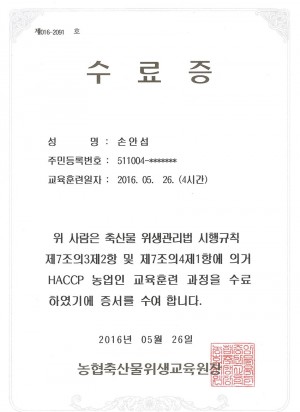[등심]15 Secretly Funny People Work In Assessing Adhd In Adults
92
2023.03.08 03:08
짧은주소
본문
Assessment For ADHD in Adults
A thorough assessment is the first step if you're unsure if you or someone close to you might suffer from ADHD. Only licensed professionals in the field of mental health can diagnose ADHD.
A diagnostic interview will look at your medical, personal and psychiatric history , from childhood until today. This could involve reviewing school records and talking with relatives and other important people in your life.
1. Behavioral Assessment
A behavioral assessment is a crucial part in the diagnosis and treatment of ADHD. It involves observations of the behavior of a person as well as tests of their ability to perform tasks. It is usually performed by a licensed health care professional.
Making a record of the patient's medical history is the first step in conducting a behavioral evaluation. This should include information about the patient's symptoms as well as any medications they are currently taking. This information can help the professional identify any psychiatric or medical illnesses that may be contributing to their symptoms.
If it is possible, the physician should also ask about family mental health histories. This information can aid the doctor Adults Adhd Test in determining whether there are any family members that have similar or similar symptoms.
The test includes a clinical interview. It involves asking the patient about their experiences with symptoms and determining whether or not they meet DSM-5 criteria for ADHD. The DSM-5 criteria require that symptoms related to ADHD occur "often" in order to hinder or limit the individual's academic, occupational and social performance.
Although the clinical interview is an essential component of a complete ADHD assessment but it doesn't have the highest accuracy in diagnosing. The accuracy of the clinical interview is affected by the traits and personality of both the clinician and patient. Studies have shown this. This is due to the fact that it is difficult to judge patients' behavior accurately.
Behavioral rating scales are becoming more useful in identifying the symptoms of ADHD in adult patients (Barkley 2011, 2011). Although they still require judgment that is not always possible, the scales used for behavioral assessment are more accurate than clinical interviews when it comes to quantifying symptoms. This can help determine whether a patient has met DSM-5 criteria.
This kind of scale is best illustrated with the Barkley Adult ADHD Ratings Scale IV (BAARSIV, Barkley 2011,a). It is a measure of the frequency at the frequency that 18 DSM-5 ADHD symptoms are recognized by.
The self-report scale is small enough to be used for adult ADHD diagnosis. It is especially accurate when paired with the symptom validity test. It is more effective than a clinical interview for adults who suffer from ADHD in diagnosing ADHD subtypes.
2. Physical Exam
An essential part of any examination is the physical exam. This will provide information regarding the health of the patient and can aid the doctor in determining whether ADHD is present. The doctor will also be able to look into any medical factors that could be causing the patient to develop ADHD.
The physical exam consists of an entire history as well as physical examination of height, body weight as well as pulse and breathing. The doctor will also examine the person's blood pressure, note any prescription or over-the counter medicines he or she is taking, as well as screen for any medical condition such as high cholesterol or diabetes.
This type of evaluation isn't a simple one and can take an hour or more. During this time the doctor will talk to you or your child regarding your symptoms and collect feedback from teachers and other staff members who spend a lot of time with you or your child.
If the doctor has a thorough understanding of your situation and the cause of your condition, they can make a more precise diagnosis. The doctor will use the diagnostic guidelines developed by the American Psychiatric Association in the DSM-5 to establish a diagnosis of ADHD.
Adults with ADHD typically have five or more symptoms of hyperactivity-impulsivity or inattention that are severe enough to interfere with daily life and functioning. These symptoms can change over time so it is imperative that the doctor take into consideration any possible symptoms of ADHD in the course of an evaluation.
During the interview, your healthcare professional will ask you an array of questions to gauge your behavior and determine if you have ADHD. These questions use standardized behavioral questionnaires that correspond to the nine characteristics of each type of ADHD presentation (hyperactive-impulsive or inattentive).
Your doctor may interview your family members or any other individuals who are familiar with your condition and provide more details about your circumstances. This could be an crucial aspect of your evaluation in the event that you are struggling to remember details about your life or if you are unable articulate your problems clearly.
3. Psychological Assessment
To identify ADHD There are a variety of routine psychological tests that can be utilized. These tests are usually conducted by a qualified health professional and could include interviews with family members or close friends, as well as an examination to rule out any other potential issues that could mimic the symptoms of ADHD.
The Behavior Rating Inventory testing for adhd in adults Executive Functioning - Adult Edition (BRIEF–A) is one of most common assessments for ADHD in adults. It examines various aspects of executive function including how you handle tasks move between tasks, and organize your thoughts.
It also compares the difficulty you experience with others of your age to determine whether there are any issues. It employs a self-report form and an observer form to measure your symptoms against the DSM diagnostic criteria for ADHD.
Adults who suffer from ADHD often face difficulties time at school and at work which can adversely affect their performance and result in low grades and other issues. This is particularly the case for people with other mental health issues such as anxiety or depression.
An assessment for ADHD for adults should be conducted by a licensed psychiatrist, psychologist, neurologist or other physician. The doctor is also familiar with the treatment of ADHD and other psychiatric disorders that affect adults.
A mental health professional is likely to conduct an interview with the patient to ask them questions regarding how they have been dealing with their ADHD symptoms. They should also take a look at any other issues or symptoms that they might have such as an history of depression or anxiety.
They will also speak with the patient's family members to find out more about their childhood. This can aid in determining if they suffer from ADHD. They will also use a questionnaire to determine if the patient has any siblings or parents who suffer from ADHD.
They'll also speak with the patient's primary care doctor to determine if they have any physical conditions that could be contributing to the symptoms, adults Adhd test such as thyroid disease or depression. If they suspect they do, the physician will conduct tests on blood to determine what's wrong.
4. Social Assessment
An evaluation for Adults adhd test with adhd will include a social assessment. An assessment usually lasts between one and three hours. It includes interviews with the adult or their parent, as well as a close friends. An interview with a health professional such as an therapist, doctor or other healthcare professional can be included.
The interview might include questions regarding the person's work at home, school, and personal life. It also includes an explanation of the symptoms.
Some of the more obvious signs to be aware of are when someone is frequently late for appointments or fails to bring something with them. They might also have problems managing their home and work activities.
ADHD is a condition as defined by the Rehabilitation Act and Americans with Disabilities Act. People who have ADHD are not discriminated against at work. This can make it easier to find work and receive the services they require.
If an ADHD diagnosis is made, the individual is then able to start treatment. The treatment options include cognitive and behavioral therapy and coping skills education, or job coaching and mentoring.
It is essential to select the right specialist to assess you. You should consider the professional certification and academic qualifications of the specialist , as well as their experience with ADHD.
A reputable evaluator should be able to explain to you what their method is most suitable for you and your specific needs. They should be able answer your questions and provide suggestions.
Before signing any documents make sure you inquire about their fees and insurance coverage. Certain specialists are expensive and your insurance may not cover all of their costs.
It's an excellent idea to read reviews of the expert on online resources like the Better Business Bureau. You can also talk to your family or friends to learn more about the specific evaluator.
An ideal evaluator is an experienced psychologist with experience treating patients with ADHD. The evaluation provider should be competent to provide you with a comprehensive report detailing your disorder and the possibilities for treatment.
A thorough assessment is the first step if you're unsure if you or someone close to you might suffer from ADHD. Only licensed professionals in the field of mental health can diagnose ADHD.
A diagnostic interview will look at your medical, personal and psychiatric history , from childhood until today. This could involve reviewing school records and talking with relatives and other important people in your life.
1. Behavioral Assessment
A behavioral assessment is a crucial part in the diagnosis and treatment of ADHD. It involves observations of the behavior of a person as well as tests of their ability to perform tasks. It is usually performed by a licensed health care professional.
Making a record of the patient's medical history is the first step in conducting a behavioral evaluation. This should include information about the patient's symptoms as well as any medications they are currently taking. This information can help the professional identify any psychiatric or medical illnesses that may be contributing to their symptoms.
If it is possible, the physician should also ask about family mental health histories. This information can aid the doctor Adults Adhd Test in determining whether there are any family members that have similar or similar symptoms.
The test includes a clinical interview. It involves asking the patient about their experiences with symptoms and determining whether or not they meet DSM-5 criteria for ADHD. The DSM-5 criteria require that symptoms related to ADHD occur "often" in order to hinder or limit the individual's academic, occupational and social performance.
Although the clinical interview is an essential component of a complete ADHD assessment but it doesn't have the highest accuracy in diagnosing. The accuracy of the clinical interview is affected by the traits and personality of both the clinician and patient. Studies have shown this. This is due to the fact that it is difficult to judge patients' behavior accurately.
Behavioral rating scales are becoming more useful in identifying the symptoms of ADHD in adult patients (Barkley 2011, 2011). Although they still require judgment that is not always possible, the scales used for behavioral assessment are more accurate than clinical interviews when it comes to quantifying symptoms. This can help determine whether a patient has met DSM-5 criteria.
This kind of scale is best illustrated with the Barkley Adult ADHD Ratings Scale IV (BAARSIV, Barkley 2011,a). It is a measure of the frequency at the frequency that 18 DSM-5 ADHD symptoms are recognized by.
The self-report scale is small enough to be used for adult ADHD diagnosis. It is especially accurate when paired with the symptom validity test. It is more effective than a clinical interview for adults who suffer from ADHD in diagnosing ADHD subtypes.
2. Physical Exam
An essential part of any examination is the physical exam. This will provide information regarding the health of the patient and can aid the doctor in determining whether ADHD is present. The doctor will also be able to look into any medical factors that could be causing the patient to develop ADHD.
The physical exam consists of an entire history as well as physical examination of height, body weight as well as pulse and breathing. The doctor will also examine the person's blood pressure, note any prescription or over-the counter medicines he or she is taking, as well as screen for any medical condition such as high cholesterol or diabetes.
This type of evaluation isn't a simple one and can take an hour or more. During this time the doctor will talk to you or your child regarding your symptoms and collect feedback from teachers and other staff members who spend a lot of time with you or your child.
If the doctor has a thorough understanding of your situation and the cause of your condition, they can make a more precise diagnosis. The doctor will use the diagnostic guidelines developed by the American Psychiatric Association in the DSM-5 to establish a diagnosis of ADHD.
Adults with ADHD typically have five or more symptoms of hyperactivity-impulsivity or inattention that are severe enough to interfere with daily life and functioning. These symptoms can change over time so it is imperative that the doctor take into consideration any possible symptoms of ADHD in the course of an evaluation.
During the interview, your healthcare professional will ask you an array of questions to gauge your behavior and determine if you have ADHD. These questions use standardized behavioral questionnaires that correspond to the nine characteristics of each type of ADHD presentation (hyperactive-impulsive or inattentive).
Your doctor may interview your family members or any other individuals who are familiar with your condition and provide more details about your circumstances. This could be an crucial aspect of your evaluation in the event that you are struggling to remember details about your life or if you are unable articulate your problems clearly.
3. Psychological Assessment
To identify ADHD There are a variety of routine psychological tests that can be utilized. These tests are usually conducted by a qualified health professional and could include interviews with family members or close friends, as well as an examination to rule out any other potential issues that could mimic the symptoms of ADHD.
The Behavior Rating Inventory testing for adhd in adults Executive Functioning - Adult Edition (BRIEF–A) is one of most common assessments for ADHD in adults. It examines various aspects of executive function including how you handle tasks move between tasks, and organize your thoughts.
It also compares the difficulty you experience with others of your age to determine whether there are any issues. It employs a self-report form and an observer form to measure your symptoms against the DSM diagnostic criteria for ADHD.
Adults who suffer from ADHD often face difficulties time at school and at work which can adversely affect their performance and result in low grades and other issues. This is particularly the case for people with other mental health issues such as anxiety or depression.
An assessment for ADHD for adults should be conducted by a licensed psychiatrist, psychologist, neurologist or other physician. The doctor is also familiar with the treatment of ADHD and other psychiatric disorders that affect adults.
A mental health professional is likely to conduct an interview with the patient to ask them questions regarding how they have been dealing with their ADHD symptoms. They should also take a look at any other issues or symptoms that they might have such as an history of depression or anxiety.
They will also speak with the patient's family members to find out more about their childhood. This can aid in determining if they suffer from ADHD. They will also use a questionnaire to determine if the patient has any siblings or parents who suffer from ADHD.
They'll also speak with the patient's primary care doctor to determine if they have any physical conditions that could be contributing to the symptoms, adults Adhd test such as thyroid disease or depression. If they suspect they do, the physician will conduct tests on blood to determine what's wrong.
4. Social Assessment
An evaluation for Adults adhd test with adhd will include a social assessment. An assessment usually lasts between one and three hours. It includes interviews with the adult or their parent, as well as a close friends. An interview with a health professional such as an therapist, doctor or other healthcare professional can be included.
The interview might include questions regarding the person's work at home, school, and personal life. It also includes an explanation of the symptoms.
Some of the more obvious signs to be aware of are when someone is frequently late for appointments or fails to bring something with them. They might also have problems managing their home and work activities.
ADHD is a condition as defined by the Rehabilitation Act and Americans with Disabilities Act. People who have ADHD are not discriminated against at work. This can make it easier to find work and receive the services they require.
If an ADHD diagnosis is made, the individual is then able to start treatment. The treatment options include cognitive and behavioral therapy and coping skills education, or job coaching and mentoring.
It is essential to select the right specialist to assess you. You should consider the professional certification and academic qualifications of the specialist , as well as their experience with ADHD.
A reputable evaluator should be able to explain to you what their method is most suitable for you and your specific needs. They should be able answer your questions and provide suggestions.
Before signing any documents make sure you inquire about their fees and insurance coverage. Certain specialists are expensive and your insurance may not cover all of their costs.
It's an excellent idea to read reviews of the expert on online resources like the Better Business Bureau. You can also talk to your family or friends to learn more about the specific evaluator.
An ideal evaluator is an experienced psychologist with experience treating patients with ADHD. The evaluation provider should be competent to provide you with a comprehensive report detailing your disorder and the possibilities for treatment.















댓글목록
등록된 댓글이 없습니다.